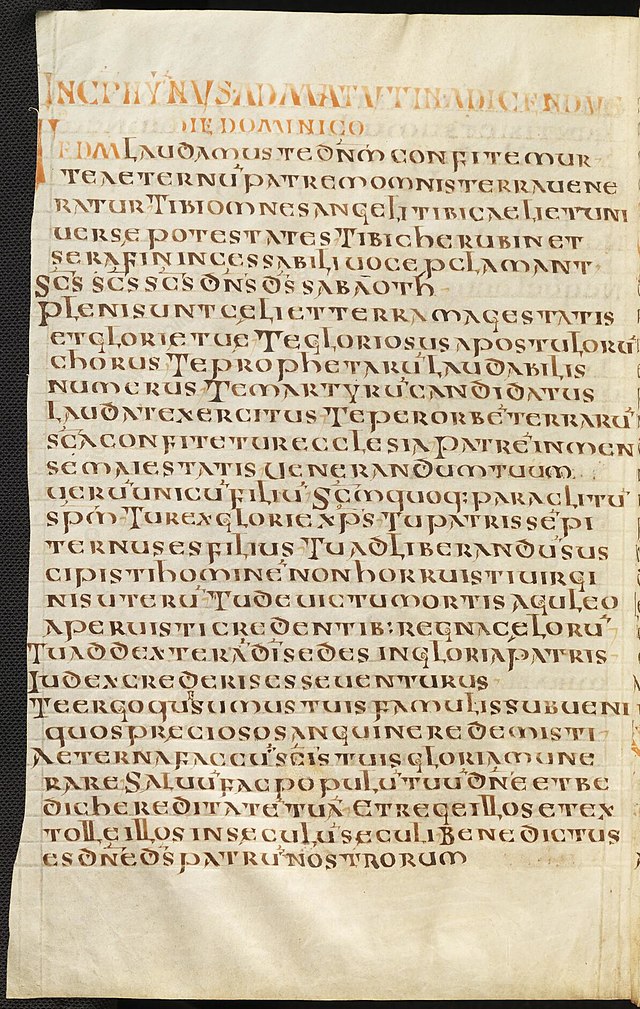Top Qs
Timeline
Chat
Perspective
Frankish Hymnal
From Wikipedia, the free encyclopedia
Remove ads
The Frankish Hymnal (German: Fränkisches Hymnar, also called "Gallican Hymnal"[1]) is a collection of early medieval Latin hymns, most likely composed during the 6th to 8th centuries in Francia, recorded in a set of manuscripts of the mid-8th to early 9th century.

Manuscripts
Summarize
Perspective
According to Helmut Gneuss (2000), the extant texts of the Frankish Hymnal are found in the following six manuscripts, all originating in northeastern France or southwestern Germany:
- Vatican Reg. Lat. 11, foll. 230v–236v, mid-8th century;[2]
- Paris B.N. Lat. 14088, 8th or 9th century;
- Paris, B.N. Lat. 13159, c. 795–800;
- Paris, B.N. Lat. 528, early 9th century;
- Zürich, ZB MS Rheinau 34, early 9th century;
- Oxford, Bodleian MS Junius 25 (the Murbach hymnal), early 9th century.[3]
A critical edition of the text was published by Bulst (1956).
The Frankish Hymnal is one of the regional traditions of "Ambrosian hymns", developed on the basis of the "Old Hymnal", a collection of about 15 hymns of the Latin rite which surround the core of original hymns composed by saint Ambrose of Milan in the 4th century. Other regional traditions recognized in Fontaine (1992) are the "Milano Hymnal", the "Spanish Hymnal", and the "New Hymnal" as it developed for the use in Benedictine monasteries in the 9th to 11th centuries.[4]
Within the Frankish hymnal, the Oxford manuscript (the Murbach hymnal) is of particular interest, as it includes a full set of Old High German glosses, likely still dating to the first quarter of the 9th century.
Remove ads
List of hymns
Summarize
Perspective
Seventeen hymns are innovations to the Frankish Hymnal (underlined below), of which six survive into the New Hymnal.[5]
Remove ads
See also
- Missale Francorum (Vat. Reg. Lat. 257)
References
Wikiwand - on
Seamless Wikipedia browsing. On steroids.
Remove ads
